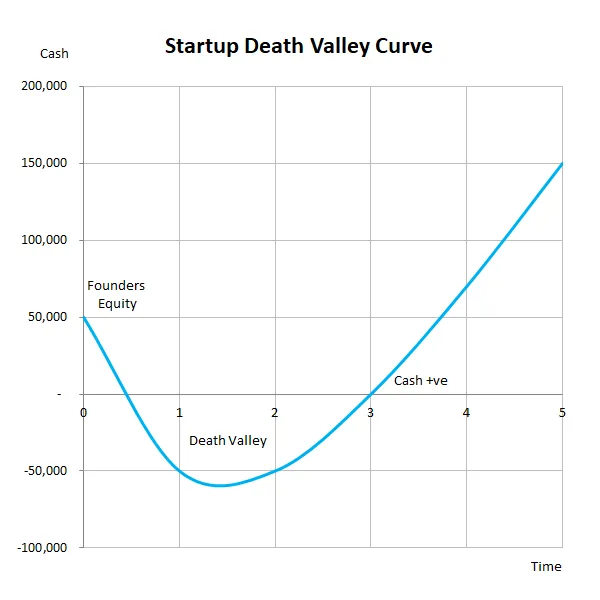I Want to Start My Own Business But Don't Know What to Do...
Dec 09, 2022
Starting a new business is exciting, but also intimidating. There are so many things to consider before launching your venture. How do you choose between the various options? What should you focus on first?
Starting a business requires careful consideration. The decision to launch a startup is often driven by passion or necessity. If you’re looking to create a successful company, you need to take some time to evaluate your goals and determine whether entrepreneurship is the right fit for you.
There are several ways to get started. Some entrepreneurs prefer to build their own brand from scratch, while others opt for pre-existing brands. Either way, you'll need to decide what type of business you want to run. Once you've decided, you'll need to figure out what kind of business you want to start.
Feeling Paralyzed
Do you want to be your own boss, control how you spend your day? Well you're not alone, many first-time entrepreneurs decide to quit their 9-5 job so they can take control of their schedule better instead of being tied to a desk. However, while the idea of being set free to do what you want sounds great you need to have a game plan and an idea of what's your next move.
Don't have any business ideas? No problem; we've got a blog for that so you can brainstorm your perfect idea.
Honestly getting started with some kind of direction is sometimes the hardest part. Ideas are dime a dozen, the hard part is trying to figure out a) which one I feel the most energized and motivated by and b) which is the most viable option. There's no such thing as a 'guaranteed success' but building a business is a persistent and consistent effort over time... if the business your building isn't something you enjoy it'll be a long and painful road ahead for you.
Finding Clarity
You might not find your business idea right away and that's okay. If you're having a hard time finding something that interests you the best thing to do is to try different things; volunteering, hobbies, talking to friends and family... it's about finding inspiration.
When trying to find your path you also need to map out 'what does success look like for you?' Does running a brick and mortar business sound appealing, or would you prefer a home-based business? It's different for everyone, and having a good idea also needs to suit your ideal living conditions. Being a business owner is no easy feat, if part of your success plan is to make fast, quick, easy money entrepreneurship might not be the path for you. It's incredibly rare to truly experience an overnight success. Every founder I've interacted with doesn't experience true success until they are a few years into the business where they can see regular cashflow they can measure and predict. Again having an idea of what a 'successful business' means to you is an important consideration when planning on what you're going to build.
Once you have some idea of what kind of direction you'd like to take, it then becomes a question if entrepreneurship is the right path you're looking for. What do I mean?

How to Manage the Risk
Honestly, starting a business can scare the living daylights out of people. And rightfully so, if you've got a stable 9-5 job with a regular pay cheque coming in - you can map out how you're going to pay for your mortgage, clothes and food for the family, kids' activities etc. But when you explore the path of entrepreneurship you're consistently operating in the red for an extended period of time, that some people just aren't okay with.
You need to have a firm hard stop limit with what you are willing and not willing to do. From a time and money perspective. How long are you willing to work on something with no results to conclude that it's not worth your while. Similarly, how much are you willing to spend? Having an overall financial plan is not just helpful for a business plan but for you to also be able to figure out, how long (best guess) you're going to operate with no revenue coming in, what's the timing to survive the Death Valley curve?
This will impact the type of business that you're considering as well. Different types of businesses require more capital and time than others. For eg. setting up and starting your own coffee shop will come with a lot of expenses (think about finding a location, paying the rent, and then purchasing all of the necessary equipment + renovation costs...) it all adds up. If I also have the skills to start an online graphic design business, well the costs are significantly less intensive. Sure you have to pay for the software and perhaps a good computer, but there's no additional rent and it can be done right from the comfort of your own home. Think about what skills are required to get the business up and running. There are plenty of online business ideas, and they are becoming increasingly popular because of their overall low-cost and no barriers to entry. Keep in mind, the same is true for your competitors... we'll discuss this in greater detail in the following sections.

If You Fail to Plan You Plan to Fail
You've probably heard of a 'business plan' and when you Google it there's nothing but endless 50+ page templates that all seem dry, and pointless. But a business plan doesn't need to be this way. It's a necessary step to compile what steps are needed to be executed.
It's a compilation of all of the market analysis and research you do, what your conclusions are for the target market - and how you're going to communicate with them (ie. marketing strategy). It also lays out what your business model is, how you're going to make money and the overall path to profitability. Your business plan is really the blueprint for your business, and what all of the necessary cogs in the machine are in order to make it work.
What Kind of Business Should You Start?
Entrepreneurship isn't for everyone. Although there isn't a boss you have to answer to, there is an incredibly amount of stress and hard work that goes into building a business. It's not for the faint of heart, the pay cheques are inconsistent or nonexistent in the beginning. While you can control what kind of business and industry you get involved in - you need to fully commit. That usually means working late, working way more than the traditional 40 hour work week. And having to sacrifice time with friends and family in order to move things forward. Again, not for everyone.

Research Your Competitors and Market
Okay so once you've identified a problem and your business could therefore be the solution you need to better articulate and formulate an overall market analysis. Out of the potential customers you've identified which segment is the lowest hanging fruit?
Here's an example, I'm passionate about making chocolate confections in my bakery. People of all ages love chocolate. But when you have limited marketing dollars to spend, you need to be able to understand who to target your efforts on. After surveying 3 different demographic segments: children, working mid-20 year old females, and moms I found out that in more cases than not young working women wanting a quick pick me up in the afternoon turned out to be the best segment to focus my marketing efforts on.
You might have assumptions on who you feel is your customer base. But it's important to still do the initial groundwork, research and talking with potential consumers to validate or dispel your assumptions. It's how you're able to ensure you're reaching your ideal customers that will contribute to your bottom line.

You also need to look at the key players in the space. My potential customers could have 5 other competitors they could go to, and you need to be able to understand why people would choose you versus everyone else. When analyzing your competitors, get a sense of their company size (estimated revenues, how many employees, and overall market presence). Acting as a patron (or customer) can help you get an idea from the inside how they are providing value, and if they are generally solving the problem.
You'll also be able to get a sense if there is a loyal customer base, and how they are keeping their customers happy. Do they have excellent customer service? Think about the experience overall, if it's an ecommerce platform, how easy was it to navigate? What was your first impression? How can you learn from them in order to make the experience interacting with you and your business better. Customer feedback is incredibly impactful when building out key differentiators. Look at your competitors' forums, or Q&A sections - especially those that allow for people to upload their questions to the general public. You'll be able to gauge if there are certain key features that a wide swath of people are asking for but it hasn't been given for over a year.
There may also be design elements that you could take advantage of as well. Again this is relevant if you use your competitors' products and get an overall feel for what the current customer experience is like & how to be better.
Plan How to Position & Build an Execution Strategy
Building a brand is by no means an easy task - you need a brand identities that people can easily remember and sum up the essence of your business in 5 seconds or less.
This includes coming up with a business name and overall mission statement that can then be chopped up into a bite size statement used across marketing channels.
When we say 'position' what we're really saying is looking at how the other competitors are pitching their product/service to customers. How can you be different and stand out from them?

What Kind of Brand Would You Proudly Represent?
There are plenty of sites that act as a business name generator... coming up with the brand yourself, or interacting with a marketing advisor (marketing firm) can also pay dividends in the future. This is sometimes unnecessary depending on the type of business you're building. Eg. If I'm setting up my own construction company - it may be more effective from an SEO perspective if I just put my location + Construction (Durham Construction Inc.). If you're launching a CPG company however, 'granola bar' might not cut it.
You do not need awesome design skills either. You just need to understand what kind of brand would resonate and be effective to your target market, and communicate that to an outsourced marketing agency or firm. You can even look at sites such as Fiverr or Upwork, or give a brand brief on Instagram and look at all of the graphic design accounts that submit their version of a brand brief.
Your visual brand identity and marketing assets will be important with how you think customers will engage with your brand. Where will their purchase your product/service? If it's an online purchase, you'll need to ensure that your website looks professional, the images easy to recognize, engaging enough that consumers keep interacting until they checkout. There are plenty of ecommerce website builders such as Shopify, Wix, Squarespace that can help you create a great site. Or if they are purchasing a product in-store give some thought to the packaging that they will touch and hold. Again we're trying to establish a good customer experience to retain customer loyalty.

Understand the Nuts and Bolts
The nuts and bolts of the business pertains to everything from the legal structure (ie. sole proprietorship, incorporated, limited liability company). Conglomerates have a complex business structure, but when you're just starting out - things aren't needed to be complex. Again it's about what the minimum amount of tasks needed in order to launch and get the business up off the ground.
You'll need to consider if there are any key legal requirements such as specific business licenses, other regulations needing to be considered before you're able to launch. Think about if you're opening up a restaurant for example, you'll need a business license from the municipality, a liquor license if you're wanting to sell & serve alcohol, various permits from the sign, to building health, to food handler's - again it's important to check this in your location as there might be specifically unique ones.
Your business finances are also important. You should put together a financial plan that forecasts out anticipated revenues, expenses, and get an overall baseline of just how much upfront capital & expenditures you're anticipating. This will be vital if you're requiring a business loan. Setting up a separate business bank account from your personal is generally useful to keep finances separate and easier to track. You'll be able to set up a business credit card and be considered for various business banking products.
If financial statements aren't your thing, you'll want to get a run down from either an accountant or look at taking a couple of online classes to be able to at least understand what are the key elements of financial statements that are important to track the overall financial health of the business. There are various business accounting tools and softwares that you can implement to keep track of business expenses and invoicing. Again this will help with business tax deadlines, and understanding how to manage your cash flow effectively. Financial literacy will also be important if you're looking at additional funding, loans, investments for your business. While explaining your business story is one thing, you need to be able to articulate the financial expectations you have in the next 3 years.
If You're All In, Ignore Self-Doubt
If you're a naturally confident person this section might not apply. But for the broad set of people looking to become an entrepreneur, a major hurdle you will come up against... is yourself. You can be your harshest critic, and the imposter syndrome is crippling when trying to navigate the entrepreneurship space.
If you're constantly questioning what to do, ultimately you'll be acting too slow or you'll be too scared to take the plunge. It's easy to fall into the trap of thinking "what if I fail?" If you're all in, ignore self doubt. You won't succeed without some level of risk. And while you may not like the idea of failure, it's something you must embrace. Failure is part of life, and it's how we learn.
The more you try, the better you'll get.

I Don't Have Any Money
Depending on the type of business, some businesses need more upfront capital than others. But at the end of the day, you can't expect nothing to come out of nothing. You'll need some initial money to purchase necessary expenses to even start putting a product together to then offer to a customer, let alone needing cash for marketing initiatives.
That's not to say that you need to raise millions of dollars to get started. But you'll need to plan ahead, pull from personal savings, reach out to friends & family that could act as your first investors. And bootstrap until you're able to generate revenue.
You can also look at alternative lenders, think credit unions, micro loans from municipal governments, and government grants are also beneficial sources of capital. However, again there will be a need for a good business plan and more often then not you'll already need to have some revenue to qualify. Some government grants will only have certain eligible purchases, and not necessarily cover the cost of employees/payroll but would instead cover rent or equipment.
There's always sources to seek out financial advice, looking to accounts to be in charge of your taxes and annual statements can also help. But don't be solely dependent on them, understanding and learning financial statements are incredibly important. Asking your accountant to walk you through your cash flow statement, income statement and balance sheet is a great first step.
Access to funding is never a guarantee. Some countries and economies are more supportive to entrepreneurial development than others - looking at if there are any entrepreneurial programs you can access is a great first step.

Get Scrappy & Creative
Unless you're very fortunate and have buckets of money to spend, bootstrapping will probably become a very familiar term. Bootstrapping is derived from personal finances, any capital you get from friends and family, and the revenues reinvested back into the company.
Going viral in terms of marketing doesn't mean you necessarily have to spend big bucks to start generating revenue into the company. Social media marketing can be a great source if used effectively, similarly if you're in an industry and can create an email list of potential partnerships, customers etc. It's about how effectively you can spread the message as cheaply as possible. A good resource to check out to get in contact with a reporter is helpareporter.com you won't see results right away, but consistently showing up could help land an article in a well established news outlet (again if that's the right demographic for you). And looking at taking out placements in newsletters, or if you're opening a business to serve customers locally - going door to door with pamphlets will be cost effective but a huge time suck, but it'll leave a good impression with customers.
Attending free sessions and brain sucking how other people effectively used social media platforms is also a great way to generate traffic from potential customers to an online business idea. You could also look at hiring a virtual assistant to help manage the online social media side of things or looking to hire other professional services with other aspects of the business. Again, this all depends on your budget and how quickly you think you can start generating revenue.

Stay connected with news and updates!
Join our mailing list to receive the latest news and updates from our team.
Don't worry, your information will not be shared.
We hate SPAM. We will never sell your information, for any reason.




